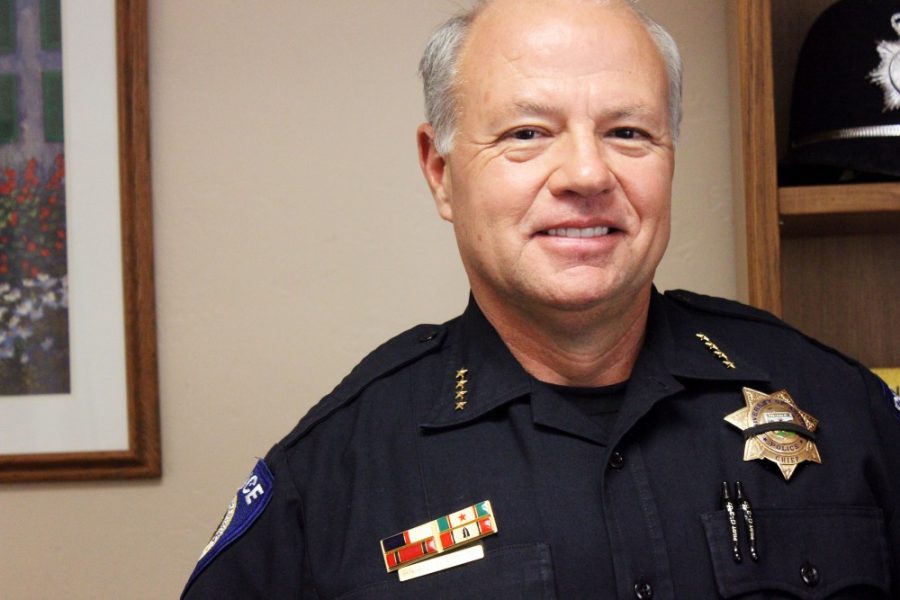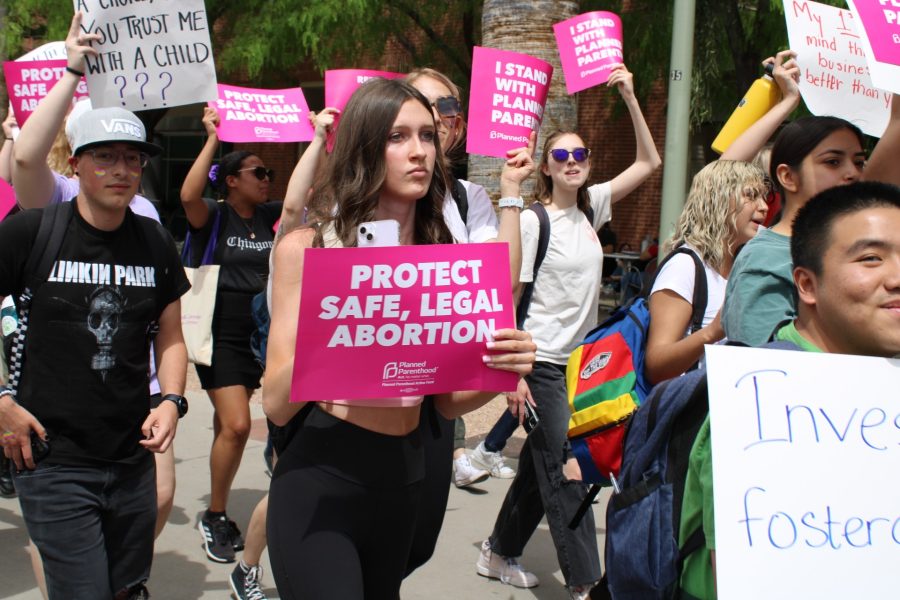The University of Arizona Police Department recently appointed Brian Seastone as the new chief of police. The _Daily Wildcat spoke to Seastone about the changes he plans on bringing to the department and the ways UAPD plans to create more of a presence in the community._
DW: Is there anything you’re hoping to change about the way UAPD is currently being run?
Seastone: I want to say that we’ve got a really good department, and so what we need to do is just make some modifications. [Something] I said all through this process, and that’s becoming more involved in the community. To be more visible in the community and to really be a partner in collaboration with the entire university community, and our supporting agencies that help us out so much.
What do you think the hardest part of this job will be?
The hardest part is whenever you have a personnel issue because that affects your department. Then the issues of serious crime on the campus, because that affects the entire campus. It’s a balance. There are so many different aspects of this job that keep your mind going all the time, you never want to classify one as worse than the other.
How does UAPD plan to work with ASUA (Associated Students of the University of Arizona) and other campus groups to get involved with the community?
We do a lot of work with various groups such as ASUA, SHAC (Student Health Advocacy Committee), SafeRide, the student EMS program and GPSC (Graduate and Professional Student Council). … I want our officers to get out and meet those people, become involved, go through meeting them, letting them know why we’re here and answering their questions. Some of the other things we want to do is an ‘ask a cop’ out on the mall. … There’s always the person that says, ‘I have a friend that,’ so this opens up that opportunity for them to ask us questions. I would like, along with my command staff, at least once a semester to have a brown bag lunch somewhere at the union, where people just can come in over lunch, we sit and have our sandwiches, and visit and get input.
Recently the New York Times ran an article on sexual assaults on college campuses. How well do you think UAPD handles cases of that nature?
We have really well-trained detectives and police officers. We do not have one specific detective that handles sexual-assault crimes, however that’s something that we’re looking at, to get our detectives more specifically trained in that area. We do a really good job with our investigations. One of the good things about being a campus police department is that these are really high priorities for us so we follow them and work with [victims] … so that they’re getting the support they need.
The Daily Wildcat ran a piece on how the UA handles student suicides. How effective do you think UAPD is in dealing with cases of suicide of attempted suicide?
We’re very fortunate there that we do not have a large number of suicides. It’s very infrequent on our campus. We encounter calls where people are asking for help, they’ve maybe taken a few extra pills or something and they’re feeling depressed, and I think with the support network that we have not only through our campus officials — the Dean of Students, Student Affairs — but with the work that we do … to come out, make sure that people are OK or that they’re not going to be harmed or do harm to themselves I think we do a really good job. The important thing is to make sure that person is getting the help they need.
If there was one thing you think students should know about UAPD what would it be?
We’re their hometown police department. We’re here to help, we’re here to make people feel safe on this campus, but also help them to graduate safely. People don’t realize that some of the actions that they may take or things that they do can have a consequence after they graduate, so we’d much rather talk to them now and let them know if you do this and get arrested for this, or even if you don’t get arrested for it, this could jeopardize [your] future. … A campus police department really is the example of what community oriented policing is. We’re here to help. We want to be approachable, we want to answer questions, we want to be helpful. That’s what I really would like the faculty, staff and students to know, is that we’re here to protect you, we’re here to help you and we’re here to be a part of this community.









